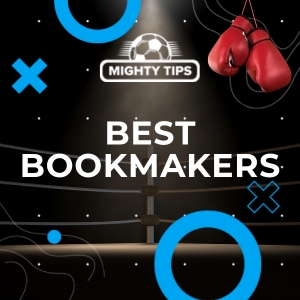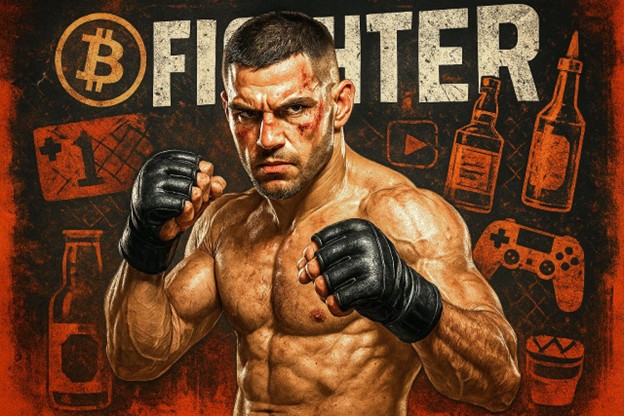People used to think MMA fighters were done the moment gloves were hung. Not any longer. These guys are business owners, public figures, and investors who are building companies that go far beyond the Octagon. There are people who start with cryptocurrency wallets, whiskey barrels, or CBD labs. In either case, a modern fighter’s job plan looks more like a road map for starting a business than a fight card.
From the Cage to the Blockchain
A lot of people have walked into crypto’s ring, which is hard to ignore. Matheus Nicolau was one of the first UFC fighters to get paid in Bitcoin. He said he believed in the “long-term value” of digital assets. Since then, other people have done the same thing, using cryptocurrency as a business and a way to get fans involved.
Some fighters have even gone further and tried their hand at NFTs and coin launches. For example, Conor McGregor’s “REAL” token sales tried to use his worldwide fame to make money before it ran into problems with the government. Others, like Khamzat Chimaev’s SMASH coin experiment, showed how risky these businesses can be.
Even so, crypto is still an interesting new area. People who got in early or were smart about it now treat blockchain projects like any other business asset. That’s why a lot of them look at new market possibilities the same way they look at how a competitor moves.
For those exploring similar routes, tracking upcoming crypto presales has become a way to gauge which projects have real-world staying power. Such platforms curate and vet early-stage token offerings, filtering out pure hype from projects with solid fundamentals. It’s the kind of due diligence fighters-turned-investors now take seriously, studying market trends the same way they’d break down a new opponent’s game tape.
The Whiskey King and the Sauce Boss
If crypto is the digital hustle, whiskey is the liquid gold. Proper No. Twelve by Conor McGregor didn’t just sell bottles, but personality, too. Within three years, the Irish whiskey brand became a multimillion-dollar monster. It was finally sold for a reported $600 million to a new owner who owned the majority of the company. McGregor used his attitude, grit, and showmanship as a fighter to make his books more appealing to buyers.
He’s not the only one cooking outside the box. Dustin Poirier’s Louisiana Style Hot Sauce may not have the powerful PR that McGregor does, but it does have heart. It’s a real tribute to his roots, and it shows that being real can sell. Poirier tastes each batch himself and often gives the money he makes to The Good Fight Foundation, combining business with charity.
Wellness, CBD, and the Science of Recovery
As sports medicine advanced, fighters found new ways to make money off of their recovery. Nate Diaz, who doesn’t like to follow the rules, joined the CBD scene early on with Game Up Nutrition. What started out as a small family business is now one of the most well-known supplement brands run by fighters. It takes advantage of the health wave of athletes looking for new ways to deal with pain.
Some people joined the cause. Bas Rutten made CBD Extreme to help with inflammation after a fight, and Jake Shields and Joe Rogan have both backed businesses that use cannabinoids to help people heal. For a job that’s all about endurance and effect, it’s poetic that fighters are making money off of the tools that help them keep fighting.
Merch, Coffee, and Brand Culture
Keith Jardine’s Caveman Coffee began as a niche lifestyle brand focused on cold brew, clean energy, and primitive style. It has since become a cult favorite among CrossFitters and athletes. With Lacie Mackey, a stuntwoman, Tait Fletcher, a former UFC champion, and Jardine, they turned coffee into a community.
The huge demand for fighter-branded goods is based on the same idea. El Recuerdo Mezcal by Jorge Masvidal is both a drink and a way of life. Sean O’Malley’s neon-colored clothing and NFT collections mix personal branding with online identity. They are more meme-like than popular, but they are definitely market-savvy.
Streaming, Gaming, and the Digital Octagon
A new group of fighters is making it harder to tell the difference between an athlete and an artist. Max Holloway and Demetrious Johnson are gamers who stream on Twitch on a daily basis. Rampage Jackson and Michael Bisping both used their fame to become popular on YouTube, where they made a living by commentating on fights after they happened.
There are also more and more tie-ins with e-sports. Johnson even started his own gaming organization called Mighty Gaming to bring together the worlds of mixed martial arts and professional video games. No longer is it strange for a UFC competitor to talk about frame rates or Web3 sponsorships. It’s just how businesses brand themselves these days.
Conclusion
In the past, MMA was a grind that had an expiration date. Now it’s a launch station. Celebrities in the UFC are showing that a job in fighting can turn into a full-fledged business portfolio. The smartest ones treat each job like a camp. They study, plan, do, and switch things up.
Prepare for the next generation of athletes to come along. The next Conor McGregor might not only own a belt, but also a blockchain.



